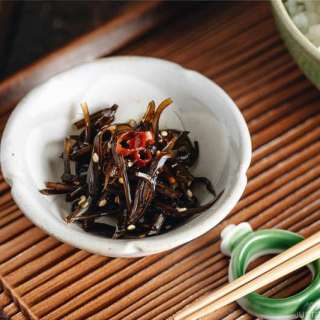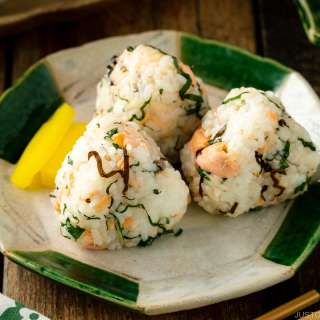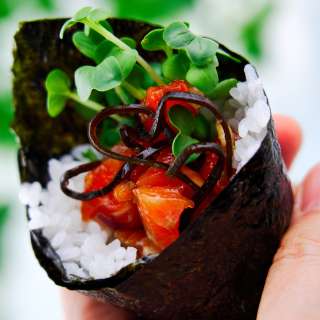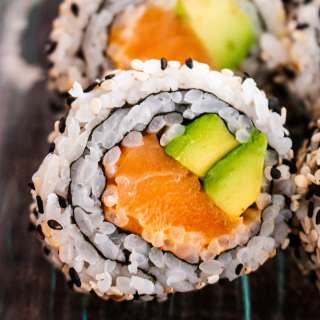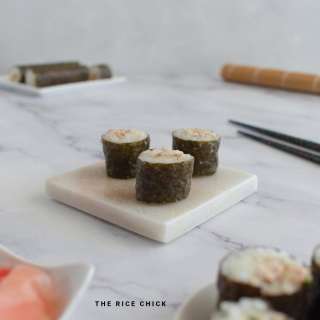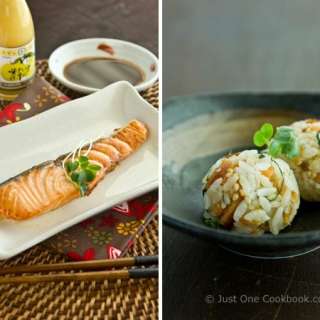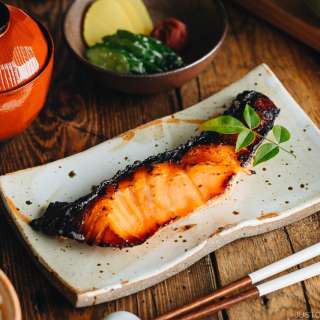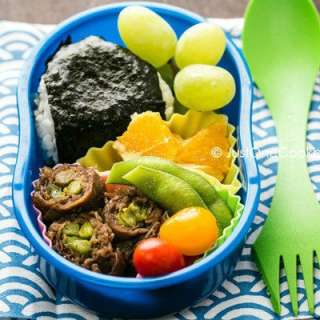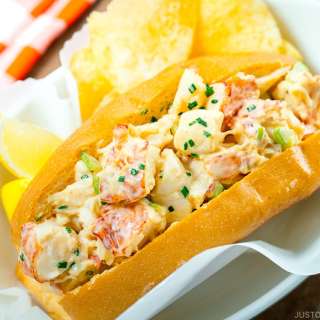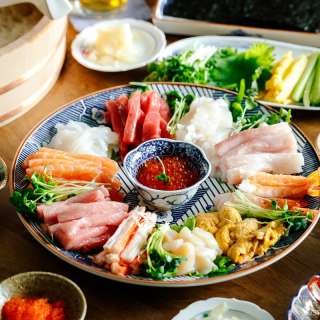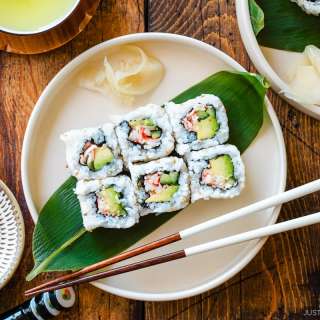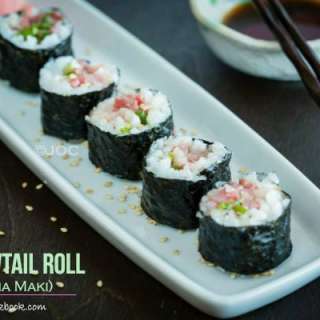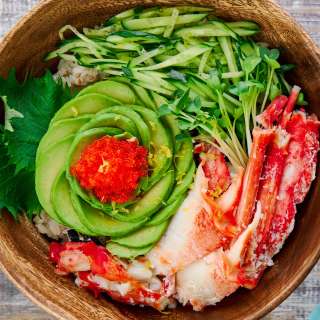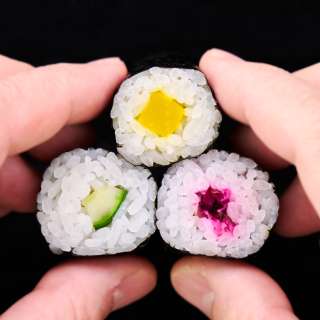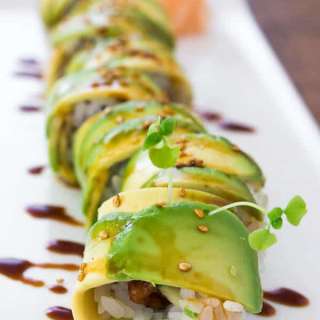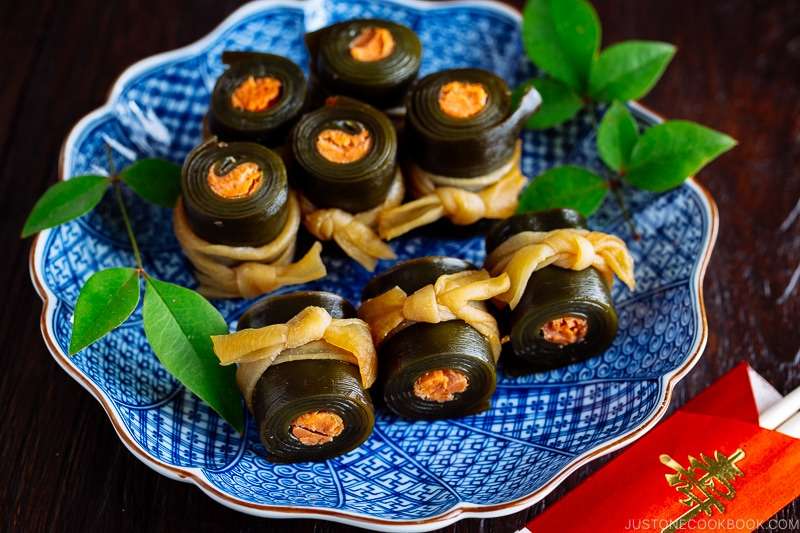
Salmon Kombu Roll
User Reviews
5.0
15 reviews
Excellent
-
Prep Time
1 hr 15 mins
-
Cook Time
1 hr 15 mins
-
Total Time
2 hrs 40 mins
-
Servings
16 salmon
-
Calories
65 kcal
-
Course
Side Dish, Main Course
-
Cuisine
Japanese

Salmon Kombu Roll
Report
Salmon Kombu Roll is a flavorful dish served in the Osechi Ryori feast of traditional Japanese New Year foods. Representing the secrets of perennial youth and long life, these exquisite appetizers are believed to bring happiness and joy in the new year.
Share:
Ingredients
- 8 pieces hidaka kombu (日高昆布; known for its tender texture after rehydration)
- 5 cups water (for soaking the kombu)
- ½ oz dried kanpyo (gourd strips) (I used the whole package)
- 1 tsp Diamond Crystal kosher salt (for rubbing the kanpyo)
For the Salmon
- 2 cups water (for desalinating the salmon)
- 1 tsp Diamond Crystal kosher salt (for desalinating the salmon)
- 3 fillets Homemade Japanese Salted Salmon (you can purchase uncooked salted salmon at a Japanese grocery store or use my Salted Salmon recipe (uncooked); skip for vegan/vegetarian)
For the Seasonings
- ⅓ cup sake
- 1 tsp rice vinegar (unseasoned)
- 3 Tbsp sugar
- 3 Tbsp soy sauce (divided)
- 3 Tbsp mirin
Instructions
- Before You Start: If you will include this dish in your Osechi meal, I recommend cooking it up to a day before you plan to serve. For more helpful tips on planning your Japanese New Year feast, please read my A 5-Day Osechi Cooking Timeline blog post.
- Gather all the ingredients.
- Soak 8 pieces hidaka kombu in 5 cups water for 30 minutes. Reserve this liquid called kombu stock (or Kombu Dashi), yielding roughly 4 cups, for cooking the rolls later.
- Soak ½ oz dried kanpyo (gourd strips) in water for 15 minutes and drain. Quickly rinse the kanpyo under running water and rub it with 1 tsp Diamond Crystal kosher salt. Rinse again and drain well.
To Prepare the Salmon
- In a flat container, add 2 cups water and 1 tsp Diamond Crystal kosher salt for the salmon. Then, place 3 fillets Homemade Japanese Salted Salmon (uncooked) in the container and set them aside for 30 minutes to desalinate. Tip: Why do we use salted salmon? It releases less protein while simmering compared to regular salmon.
- Remove the salmon from the salted water and gently pat dry with a paper towel.
- Using a sharp knife, remove the bones from your fillets, if there are any.
- If you have kitchen tweezers, use them to easily remove any individual bones from the flesh. Finally, use the knife to remove the skin.
- Cut the salmon fillets into a log shape about the same width as the kombu, roughly 3½ x ¾ inches (or any shape that is easy to roll up in the kombu). Make sure the salmon and kombu are the same width.
To Roll
- Wipe off the excess moisture from the kombu with a paper towel.
- Place the log-shaped salmon at one end of the kombu and start rolling it up. As you roll tightly, pull up the other end of the kombu a few times to maintain the tension.
- Once you finish rolling the salmon in the kombu, secure the roll with the kanpyo tied in a knot. Depending on the width of the kombu, you might need to tie the roll in one to three spots. Think about the final serving size and decide on the location of the knots. Here, I tied each roll in two spots. Since I will cut each roll in half, one strip of kombu makes two pieces. Repeat with the remaining salmon and kombu.
To Cook
- Place the salmon kombu rolls in a large pot (I use a Le Creuset 3.5 QT pot). Add enough of the reserved kombu dashi to fully submerge the rolls; I used roughly 3 cups. You don’t have to use all of the kombu dashi. Save the remainder just in case you need to add more liquid later.
- Add ⅓ cup sake and 1 tsp rice vinegar (unseasoned) to the pot.
- Place an otoshibuta (drop lid—see how we can make it with aluminum foil) on the rolls. We do not use a regular pot lid throughout the cooking process. Once boiling, skim off the foam and scum on the surface. Then, cook on a gentle simmer for 1 hour. If the cooking liquid evaporates too fast, add the reserved kombu dashi (I did not need to add more stock).
- Insert a wooden skewer to check if the kombu has become tender.
- Once it’s tender, add 3 Tbsp sugar and half of the 3 Tbsp soy sauce.
- Instead of stirring with utensils that can potentially break down the kombu, hold the pot and swirl it around to mix the seasonings and coat the food. Simmer with the otoshibuta in place for 15 minutes.
- Add 3 Tbsp mirin and the rest of the soy sauce. Simmer with the otoshibuta in place for another 10 minutes, or until the cooking liquid is almost gone. Once it’s done cooking, remove from the heat and let cool.
- Once cool enough to handle, cut the kombu in half (if you have 2 ties). If you‘d like, cut off both ends for a neat and tidy presentation.
To Serve and Store
- Serve at room temperature in Osechi Ryori. Store in the refrigerator for up to 7–10 days; you can also freeze the Salmon Kombu Rolls for up to a month.
Nutrition Information
Show Details
Calories
65kcal
(3%)
Carbohydrates
3g
(1%)
Protein
7g
(14%)
Fat
2g
(3%)
Saturated Fat
1g
(5%)
Polyunsaturated Fat
1g
Monounsaturated Fat
1g
Cholesterol
18mg
(6%)
Sodium
177mg
(7%)
Potassium
157mg
(4%)
Fiber
1g
(4%)
Sugar
2g
(4%)
Vitamin A
13IU
(0%)
Vitamin C
1mg
(1%)
Calcium
24mg
(2%)
Iron
1mg
(6%)
Nutrition Facts
Serving: 16salmon
Amount Per Serving
Calories 65 kcal
% Daily Value*
| Calories | 65kcal | 3% |
| Carbohydrates | 3g | 1% |
| Protein | 7g | 14% |
| Fat | 2g | 3% |
| Saturated Fat | 1g | 5% |
| Polyunsaturated Fat | 1g | 6% |
| Monounsaturated Fat | 1g | 5% |
| Cholesterol | 18mg | 6% |
| Sodium | 177mg | 7% |
| Potassium | 157mg | 3% |
| Fiber | 1g | 4% |
| Sugar | 2g | 4% |
| Vitamin A | 13IU | 0% |
| Vitamin C | 1mg | 1% |
| Calcium | 24mg | 2% |
| Iron | 1mg | 6% |
* Percent Daily Values are based on a 2,000 calorie diet.
Genuine Reviews
User Reviews
Overall Rating
5.0
15 reviews
Excellent
Other Recipes
